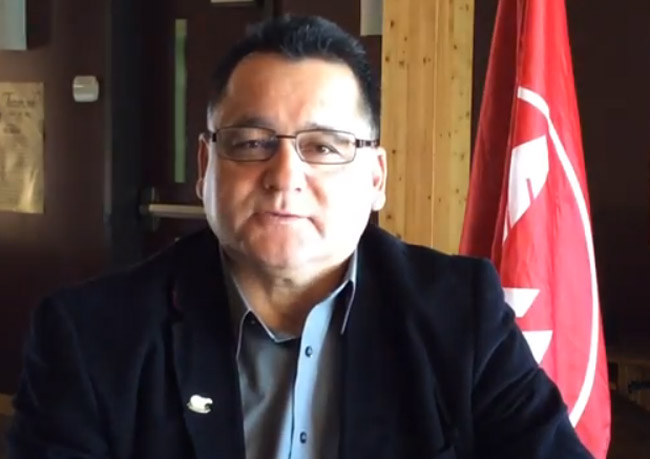Madahbee comments on Supreme Court Daniels decision
 UOI OFFICES (Nipissing FN) – Anishinabek Nation Grand Council Chief Patrick Madahbee commented today on the Supreme Court of Canada in the Daniels case relating to the rights of the Metis and non-status Indians.
UOI OFFICES (Nipissing FN) – Anishinabek Nation Grand Council Chief Patrick Madahbee commented today on the Supreme Court of Canada in the Daniels case relating to the rights of the Metis and non-status Indians.
“Metis are recognized as S. 91-24 ‘Indians’, but this doesn’t necessarily translate into legislation or funded services as was the case in 1939 with the Inuit also getting the same designation,” says Grand Council Chief Madahbee. “The issue of non-status Indians was created by the disenfranchisement of many of our people by the federal Indian Act. Most non-status Indians belong to First Nations communities and the problem would not have been created if Canada was not in the business of determining Indian Status and recognized the right of First Nations to determine their own citizens.”
The Anishinabek Nation’s E-dbendaagzijig “Those who belong” draft citizenship law states that every citizen of an Anishinabek First Nation is an Anishinabek Nation citizen and that a person is entitled to be an Anishinabek Nation citizen provided that the person can a) can trace their desendancy through at least on parent to the original people of an Anishinabek First Nation b) has at least one parent who is a member currently registered with an Anishinabek First Nation or c) the person can trace their desendancy through at least one parent to a status Indian who is registered or entitled to be registered with an Anishinabek First Nation.
“The Supreme Court may have muddied the waters by potentially equating Metis rights with those of non-status Indians,” says Madahbee. “The impact on First Nations is unclear however a lot will depend on the federal response. As we know there is only one fiscal pie and First Nations resources are already stretched thin.”


